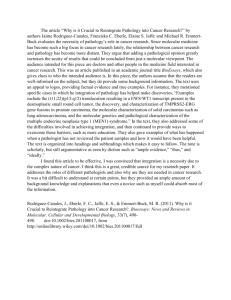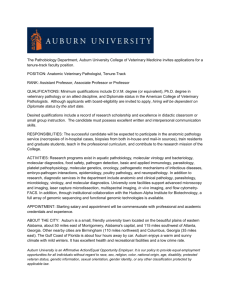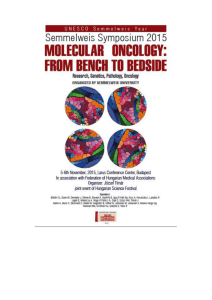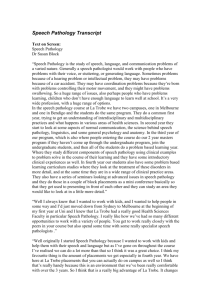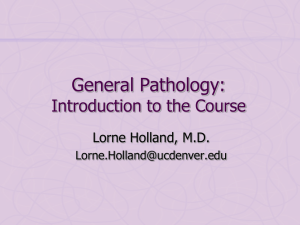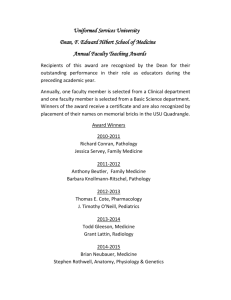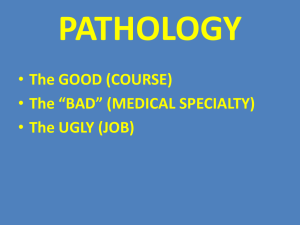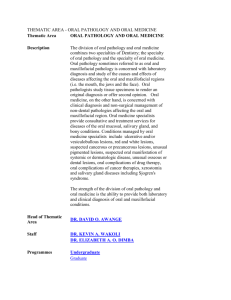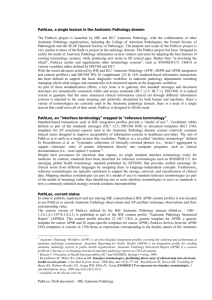Pathology - Q Centre
advertisement
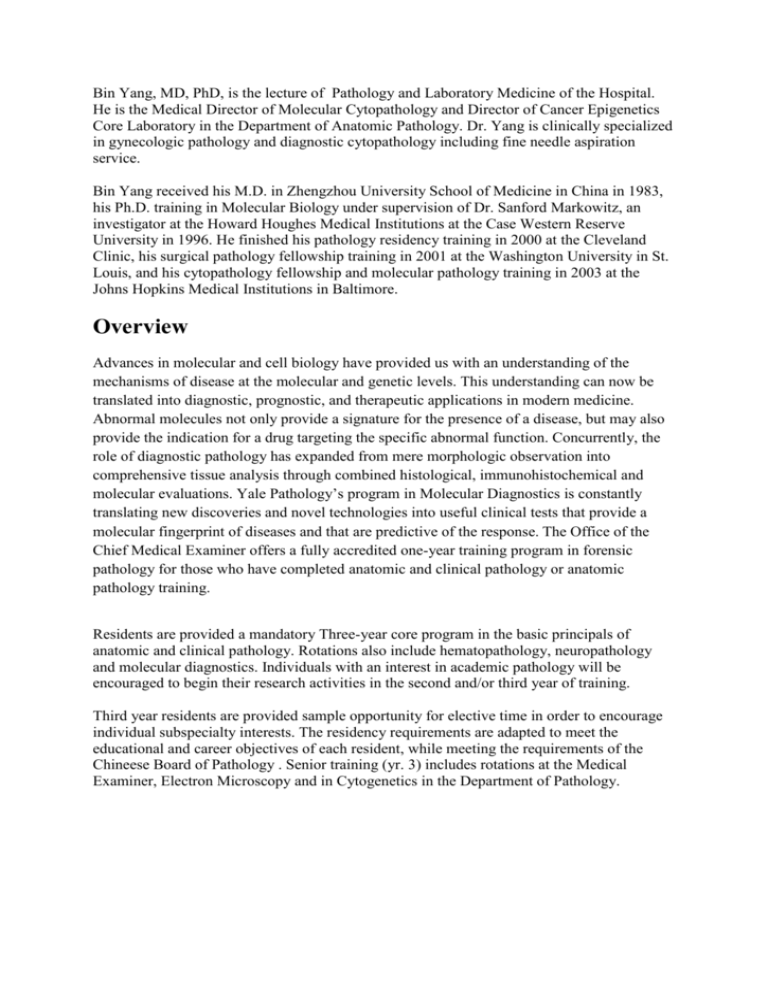
Bin Yang, MD, PhD, is the lecture of Pathology and Laboratory Medicine of the Hospital. He is the Medical Director of Molecular Cytopathology and Director of Cancer Epigenetics Core Laboratory in the Department of Anatomic Pathology. Dr. Yang is clinically specialized in gynecologic pathology and diagnostic cytopathology including fine needle aspiration service. Bin Yang received his M.D. in Zhengzhou University School of Medicine in China in 1983, his Ph.D. training in Molecular Biology under supervision of Dr. Sanford Markowitz, an investigator at the Howard Houghes Medical Institutions at the Case Western Reserve University in 1996. He finished his pathology residency training in 2000 at the Cleveland Clinic, his surgical pathology fellowship training in 2001 at the Washington University in St. Louis, and his cytopathology fellowship and molecular pathology training in 2003 at the Johns Hopkins Medical Institutions in Baltimore. Overview Advances in molecular and cell biology have provided us with an understanding of the mechanisms of disease at the molecular and genetic levels. This understanding can now be translated into diagnostic, prognostic, and therapeutic applications in modern medicine. Abnormal molecules not only provide a signature for the presence of a disease, but may also provide the indication for a drug targeting the specific abnormal function. Concurrently, the role of diagnostic pathology has expanded from mere morphologic observation into comprehensive tissue analysis through combined histological, immunohistochemical and molecular evaluations. Yale Pathology’s program in Molecular Diagnostics is constantly translating new discoveries and novel technologies into useful clinical tests that provide a molecular fingerprint of diseases and that are predictive of the response. The Office of the Chief Medical Examiner offers a fully accredited one-year training program in forensic pathology for those who have completed anatomic and clinical pathology or anatomic pathology training. Residents are provided a mandatory Three-year core program in the basic principals of anatomic and clinical pathology. Rotations also include hematopathology, neuropathology and molecular diagnostics. Individuals with an interest in academic pathology will be encouraged to begin their research activities in the second and/or third year of training. Third year residents are provided sample opportunity for elective time in order to encourage individual subspecialty interests. The residency requirements are adapted to meet the educational and career objectives of each resident, while meeting the requirements of the Chineese Board of Pathology . Senior training (yr. 3) includes rotations at the Medical Examiner, Electron Microscopy and in Cytogenetics in the Department of Pathology.
